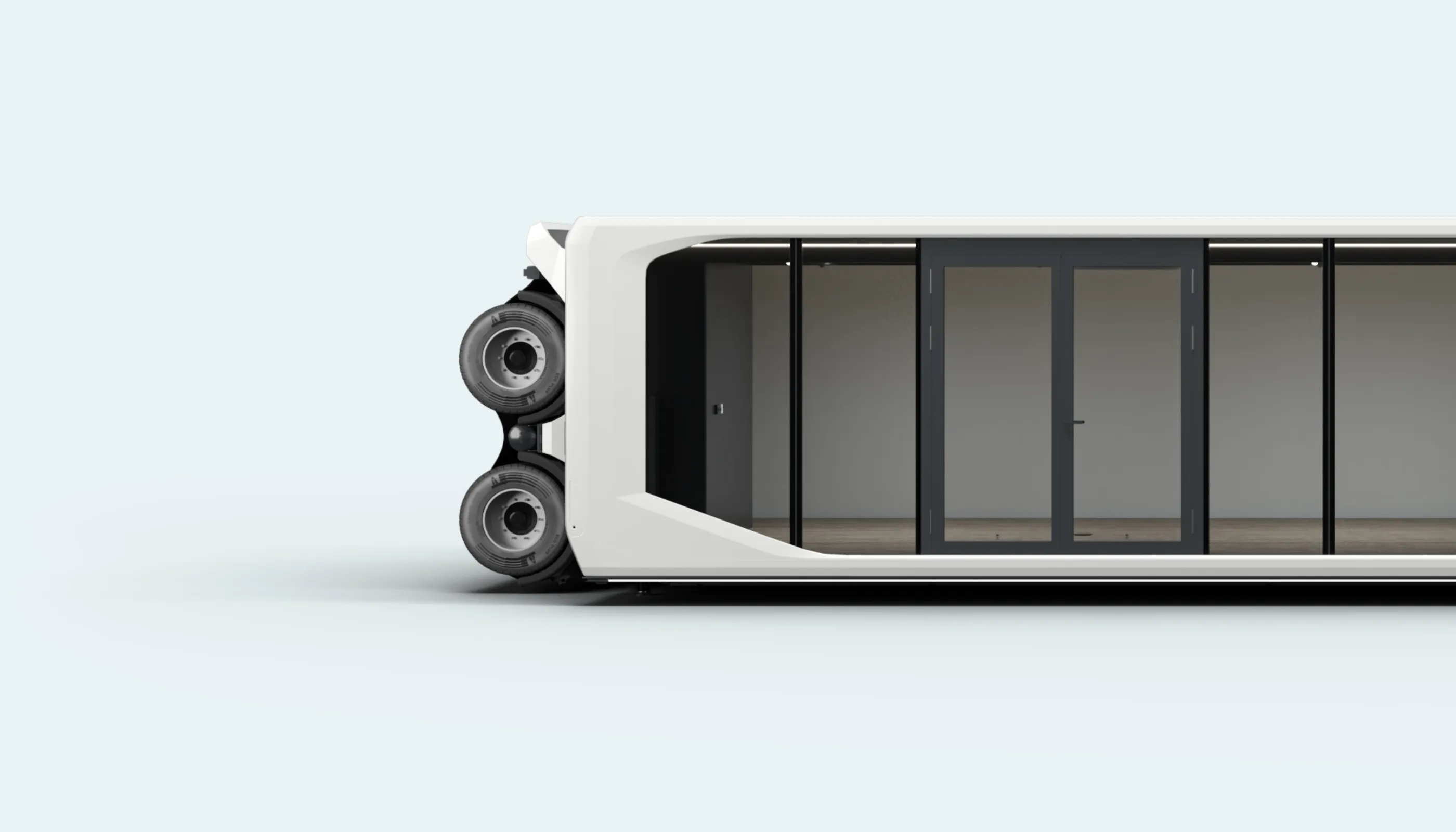Real-world challenges demand real testing
The flexibility and mobility of expandable spaces make them an attractive solution across various industries. From temporary offices and mobile homes to portable healthcare units and classrooms, these units are built to move. But with mobility comes the challenge of performance under diverse conditions. Customers rely on these units in different environments – whether it's a construction site, a disaster relief zone, or a rural community. The expectations are high, and failure isn’t an option.
That’s why we don’t leave anything to chance. Our testing process involves replicating the types of stresses and strains these units could face on the road and in use. Our testing isn’t limited to just static conditions. We test our units while they’re in motion, subjected to heavy loads, and on complex terrains.
One such example is testing on banked test tracks, where our units, mounted on trailers, are driven at angles far steeper than any real-world situation they might encounter. By simulating the forces of turning, braking, and accelerating under various loads, we can ensure that our expandable units maintain their structural integrity, no matter the road ahead.
Testing for different weight classes
One of the standout features of Expandable's relocatable spaces is their adaptability. Customers have varying needs, which means that the load a unit might carry can vary significantly. Whether it's a lightweight mobile office or a heavily outfitted disaster response unit, we design our products to handle a wide range of weights.
To ensure they perform under all conditions, we test our units with different weight configurations. Our lightweight tests involve simulating scenarios where the unit is minimally outfitted, while our heavier tests replicate a fully loaded unit, accounting for additional equipment and supplies that may be transported inside.
During these tests, we measure key performance indicators such as structural stability, balance, and the unit's ability to withstand external forces like wind resistance and road vibrations. These tests ensure that no matter how our customers plan to use their expandable space, the unit will perform reliably and safely.
Pushing the limits of adaptability
One of the key selling points of Expandable’s products is adaptability. The ability to transport these units easily and set them up in different environments is crucial for our customers. But adaptability isn’t just about ease of use; it’s about ensuring that these units perform consistently, even when they’re pushed beyond normal use cases. Our team continuously refines the design based on these tests to make sure that every Expandable unit delivers reliable performance, whether it’s being set up in the desert or in a freezing mountain range.
Safety as a top priority
Durability and adaptability are crucial, but safety is non-negotiable. For Expandable, safety isn’t just about meeting minimum industry standards—it’s about going above and beyond. Our testing protocol ensures that not only do our products survive tough conditions, but they also keep users safe in the process.
During each phase of testing, we evaluate the impact of stresses on structural components and materials. We want to make sure that our units remain secure, even when they face sudden shifts in terrain, temperature changes, or heavy impact. We also test the units for ease of evacuation and access during emergencies, ensuring that our clients can rely on these units even during the most critical moments.
Why extreme testing matters?
In the end, our rigorous testing processes are what set Expandable apart. We’re not just building relocatable spaces; we’re building trust with our customers. When a client chooses one of our products, they need to know that it will perform without fail—whether it’s during a major storm, in rough terrain, or after years of use.
This confidence comes from knowing that each Expandable space is thoroughly tested to withstand both everyday wear and tear as well as the une


.webp)









